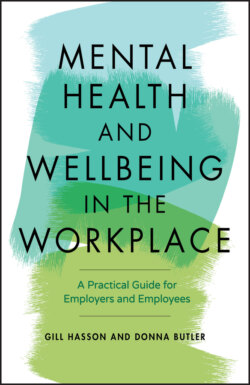Читать книгу Mental Health and Wellbeing in the Workplace - Gill Hasson - Страница 24
Menopause and Mental Health
ОглавлениеWhen a woman experiences menopause, her ovaries stop producing the hormones – oestrogen and progesterone – that contribute to the reproductive system's normal cycle. This can result in distressing and uncomfortable physical, psychological, and emotional symptoms. (Some individuals who have transitioned from female to male may still have their ovaries, and so may also experience menopausal symptoms.)
Some women see menopause as a positive experience, no longer having to be concerned about periods or pregnancy, and see middle age as a time to think of themselves rather than dependents. But for others, menopause can be felt as a loss; a woman may feel that a part of their life is over; that she doesn't compare so well with younger family members and colleagues.
Emotional responses:
Mood swings – anger, sadness, irritability
Anxiety, depression
Low self-esteem/confidence
Feelings of hopelessness
Nervousness
Panic/feeling trapped
Loss of identity – ‘I don't know who I am any more’
Suicidal thoughts/feelings
How you might behave:
Inability to concentrate at work
Feeling confused and unable to prioritize
Lack of interest in usual social activities
Being argumentative and irritable, less patient with self and others
Memory lapses in conversation with others
Eating more – comfort eating
